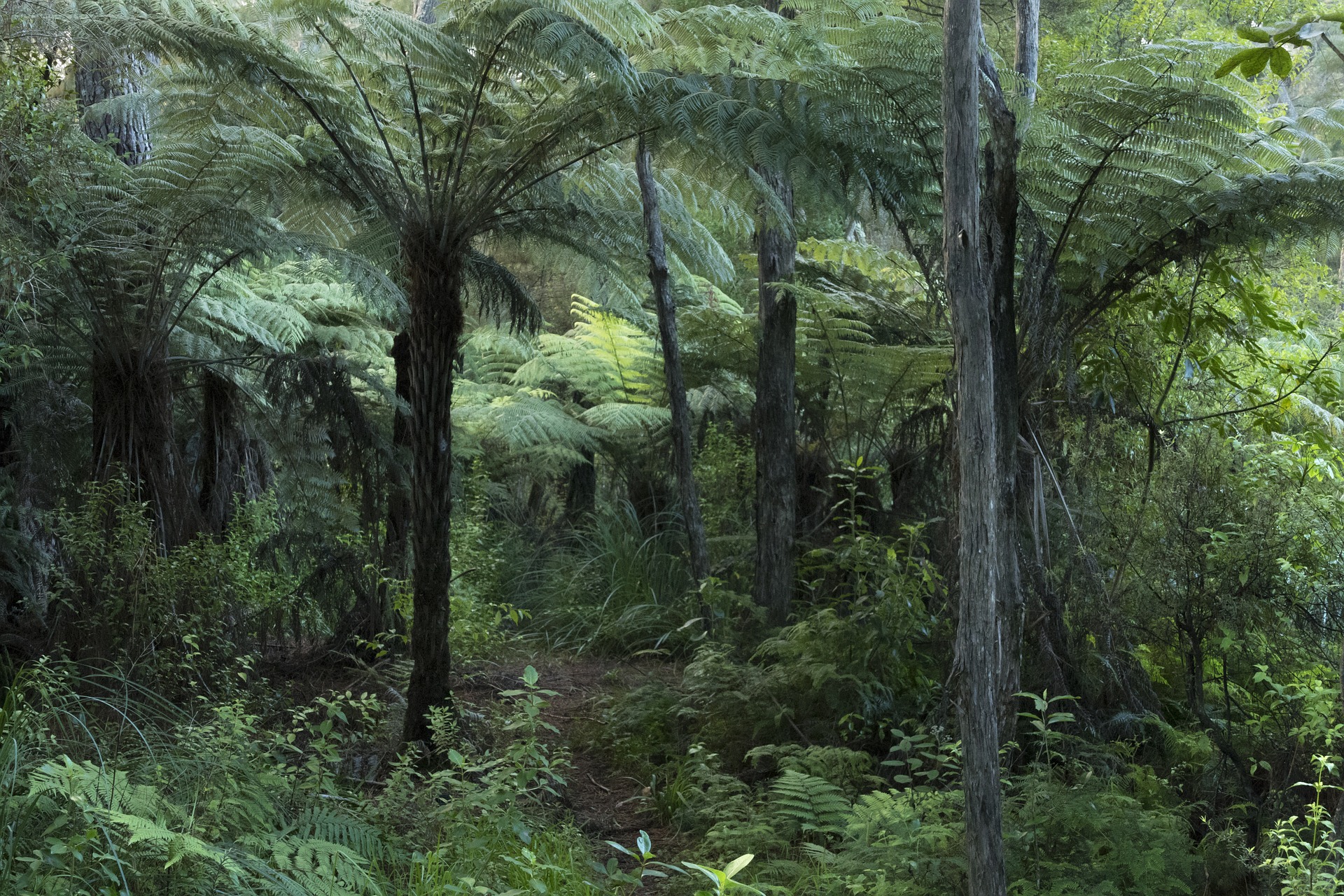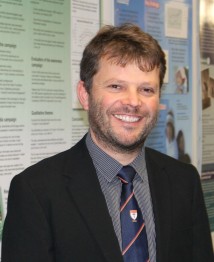Biophilic Public Health

“In the 21st century 'health for all' has to be about not just the health of people but also about the the health of other species and ecosystems, especially because for humans to thrive and be healthy we need the natural world around us to be flourishing and healthy.”
– Dr Neil de Wet, Medical Officer of Health

Toi Te Ora Public Health has committed to exploring a Biophilic Public Health approach as one that can support our vision of lifelong health and wellbeing for all.
Biophilic Public Health is underpinned by our commitment to Wai Ora and the core kaupapa of Māori understanding that the health of nature and of people is entwined and interconnected.
A Biophilic Public Health approach recognises the innate human affinity (or inborn 'love, awe and respect') for nature and that for our physical and mental health and wellbeing we need the natural world to be thriving and healthy, and we need to interact with and experience healthy thriving nature in our daily lives.
Learn more about our Biophilic Public Health development work.
Developing a Biophilic approach to Public Health

Biophilic Public Health is underpinned by our commitment to Wai Ora and the core kaupapa of Māori understanding that the health of nature and of people is entwined and interconnected. A Biophilic Public Health approach recognises the innate human affinity (or inborn 'love, awe and respect') for nature and that for our physical and mental health and wellbeing we need the natural world to be thriving and healthy, and we need to interact with and experience healthy thriving nature in our daily lives.
Therefore, a biophilic approach to public health brings a focus on how public health initiatives and interventions can be shaped and transformed to produce multiple benefits for the health and wellbeing of people, other species and ecosystems, both directly and indirectly. This is from both a local and global perspective, as well as in the short term and long term for subsequent generations. This means our practice of public health includes concern for current population health issues such as equity, obesity, chronic disease risks and mental health as well as native species, ecosystem health, biodiversity and climate change. In turn, this informs our advice and actions on issues such as urban design, transport, food and nutrition, and how the health of people and nature is promoted and enhanced in the places where we live, learn, work and play. It allows our programmes to implement an ecological model of public health, shaped by the values of love, awe and respect for nature, relevant to today's challenges and issues, and also increasingly aligning with the United Nations Sustainable Development Goals.
Read publications on Biophilic Public Health here:
- Biophilic Public Health: Re-imagining Public Health for the 21st Century - Dr Neil de Wet, Public Health Medicine Specialist and Medical Officer of Health
- Health for All – an essential transition in our thinking - Dr Neil de Wet, Public Health Medicine Specialist and Medical Officer of Health
Dr Neil de Wet, Public Health Medicine Specialist/Medical Officer of Health

 Dr Neil de Wet is a public health physician and Medical Officer of Health for Te Manawa Taki Regional Public Health, Taranaki.
Dr Neil de Wet is a public health physician and Medical Officer of Health for Te Manawa Taki Regional Public Health, Taranaki.
His interests include environmental health, ecology and health, childhood obesity prevention, and science and risk communication. He is also interested in the control and prevention of infectious diseases, and leads the tuberculosis control programme. “Much of our work in public health is about prevention, and this is often about identifying and managing risks to people’s health, preventing infectious diseases and managing outbreaks. But this also requires looking beyond the immediate risks to the wider context and long term view of what affect’s people’s health,” says Dr de Wet, “It is a real privilege and can be very rewarding to part of this long term collective social effort to improve the health and wellbeing of our communities.”
Before specialising in public health Neil spent some years working in the area of ecology and health in New Zealand and the Pacific Islands. Prior to that he worked as a junior doctor in several areas of medicine, including general medicine and surgery, accident and emergency, geriatrics and orthopaedics as well as paediatrics and paediatric infectious diseases.
Qualifications and professional memberships:
Bachelor of Medicine and Surgery, University of Cape Town
Master of Philosophy (Environmental Science), University of Cape Town
Master of Public Health, University of Auckland
Fellow of the New Zealand College of Public Health Medicine
Publications on Biophilic Public Health
Read Dr Neil de Wet's publications on Biophilic Public Health here:
Biophilic Public Health Summit

In 2019 the first Biophilic Summit - Bay of Plenty and Lakes was held in Tauranga.
Watch the presentations below:
- Professor Tim Beatley, Biophilic Cities
Biophilic Cities: Cities that Love Nature -
Graham Bidois Cameron, Bay of Plenty District Health Board
Ngā tapuwae o Tāne Mahuta -
Dr Jana Soderlund, Curtin University/Biophilic Solutions
Integrating nature and the built environment through biophilic design -
Dr Neil de Wet, Toi Te Ora Public Health
Biophilic Public Health - re-imagining health for people and planet -
Dr Maibritt Pedersen Zari, Victoria University of Wellington
Biophilic urbanism: mapping and designing nature experiences in cities -
Eugene Berryman-Kamp, Te Arawa River Iwi Trust
Te Arawa River Iwi Trust - ko au te awa, ko te awa ko au -
Professor Bruce Clarkson, University of Waikato
Bringing nature back into New Zealand towns and cities -
Erin Green and Hannah Simmonds, Te Puna Taiao
Te Puna Taiao: Healthy, resilient tamariki and communities through transformed school spaces -
Geoff Canham, Geoff Canham Consulting
Society’s relationship with nature - playing to our strengths as a species -
James Hughes, Tonkin + Taylor
Water sensitive design and its role in liveable, resilient and bio-diverse cities -
Dr Julianna Lees, Toi Te Ora Public Health
The future of food: a biophilic approach for a healthier world -
Te Rangikaheke Kiripatea, Kai Rotorua and Jasmin Jackson, Toi Te Ora Public Health
Kai Rotorua: Reconnecting whanau to Papatūānuku through kai
Watch Dr Neil de Wet present on Biophilic Public Health: Reimagining health for people and planet.
Watch presentation videos on Biophilic Public Health

Watch Dr Neil de Wet's presentation to Tauranga City Council's Water Sensitive Design Seminar in 2019.
Biophilic public health in the built environment, Dr Neil de Wet, Toi Te Ora Public Health
Neil outlines the development of the ideas of biophilic design and biophilic cities. With local and international examples, Neil describes how these concepts and principles can help inform an ecological approach to public health and the built environment that promotes the health and wellbeing of people, nature and the planet.
Resources

Learn more about biophilic ideas and approaches:
- Biophilic Cities
- Biophilic Design
- Te Puna Taiao - Healthy, resilient tamariki and communities through transformed outdoor spaces
Publications
The sourcebook directory for integrating health and urban territorial planning - World Health Organization (includes reference and link to Biophilic Public Health, under the Resources tab, row 129).
The sourcebook directory is an online repository of resources and tools that provide information about the importance of planning and designing urban areas from a health perspective. It is intended to be useful for public health practitioners and stakeholders involved in urban planning and design, to support their work towards developing healthy urban environments.
“Biophilic thinking is about love, awe and respect for nature, and is giving us new ideas, insights and examples from around the country and around the world that give real hope about how our cities and the places where we live, learn, work and play can be re-imagined and re-designed to be places that care for the health and wellbeing of people as well as other species and ecosystems.”
– Dr Neil de Wet, Medical Officer of Health





